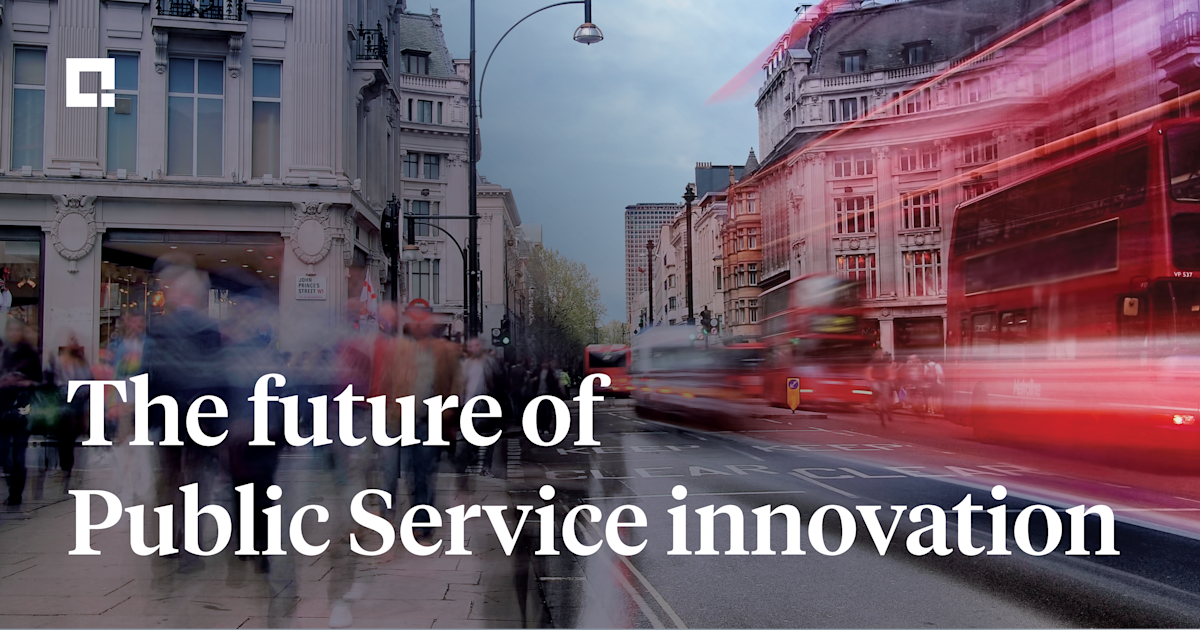Transformation
Nov 08, 2024
Insights from Government Transformation Week: The future of Public Service innovation

In November 2024, we had the opportunity to attend the Government Transformation Summit in London, now in its fifth year. This event brought together over 200 leaders in government transformation and technology from the UK and beyond, all focused on driving forward modern, mission-driven governance. Key topics spanned modernising public services, economic growth, and decentralisation, with an emphasis on innovative use of technology.
In this blog, we’ll share insights from two standout talks we attended, which showcased critical transformations aimed at improving public service delivery.
Talk one: Andrew Western, Parliamentary Under-Secretary of State for Transformation
Andrew Western, newly appointed Parliamentary Under-Secretary of State for Transformation at Department for Work & Pensions (DWP) set the tone for the event with his opening talk, outlining some key objectives central to the government’s digital transformation agenda, including:
Modernising public services: Recognising that government services must evolve, Andrew emphasised the need for a digital-first approach to improve accessibility and efficiency across departments.
Tailoring services to vulnerable citizens: Acknowledging that people’s lives don’t operate in silos, Andrew pointed out that government services must work seamlessly together, especially for vulnerable citizens.
Improving government communications: To create more effective engagement, the transformation agenda includes personalising communication strategies. This involves using data insights to ensure that the right information reaches the right citizens at the right time.
A focal point of Andrew’s presentation was the role of AI in operational efficiency, particularly through self-service capabilities that allow citizens to independently manage aspects of their interactions with the government. He stressed that this citizen-centric approach ensures that services are accessible and responsive, helping people manage significant life events more seamlessly. This agenda is underpinned by a nationwide commitment to digital transformation, which, as he put it, “will unlock the potential of our country and its people.”
The positive reception from attendees underscored how well his vision aligned with both public and operational needs. By putting citizens at the centre of digital transformation efforts, Andrew Western illustrated a government approach deeply invested in societal impact.
Talk two: Oliver Fisher, Chief Portfolio Officer at HMRC
Oliver Fisher, Chief Portfolio Officer at HMRC, followed with an insightful session on transforming large-scale governmental portfolios, drawing from his extensive experience managing one of the UK government’s largest operational projects.
Oliver opened by sharing an impactful statistic: HMRC spends approximately £5.74 billion to generate £843.4 billion in tax revenue. While substantial, he noted that there is still room for improvement. Two notable key challenges he identified were:
Digitising the taxpayer experience: Trust is paramount, and creating a streamlined, digital-first experience for taxpayers is essential. Oliver highlighted the need for a simpler, digitally accessible pathway for individuals - something critical for fostering trust and efficiency.
Overcoming “analogue” limitations: Despite efforts to digitise the front end, HMRC remains largely “analogue” at the back end, with rigid, legacy systems that are costly and slow to adapt. While HMRC has embraced agile methodologies in some areas, many back-office processes still follow traditional “waterfall” methods, creating a bottleneck that hinders responsiveness and scalability.
One of the most daunting challenges for HMRC is managing its enormous IT infrastructure, with over 40 programmes and 100 projects on its transformation roadmap. Oliver described how the department’s reliance on a small group of suppliers had left them vulnerable when those supplier relationships were restructured, leading to a significant loss of organisational knowledge.
Oliver concluded by describing HMRC as being at a “crossroads” in its transformation journey. He stressed that achieving true organisational agility is vital if HMRC is to continue delivering effectively in a digital age. The suggestion was that organisations must become more adept at defining and communicating their requirements to avoid setbacks due to ambiguous or undefined goals.
Key takeaways
Both talks at Government Transformation Week underscored the critical need for modernisation and agility in public service delivery. Andrew Western highlighted the transformative potential of a citizen-focused approach to create inclusive, efficient services that break down silos. In contrast, Oliver Fisher presented a more operational view, discussing the necessity of digital agility in large-scale legacy organisations like HMRC.
These discussions reflect the broader shift in government toward a more responsive, digitally empowered future. By prioritising both citizen needs and internal agility, UK government departments are setting a solid foundation for public service transformation that benefits citizens and strengthens trust across communities. As government leaders continue to tackle challenges in digital transformation, these insights remind us of the importance of shared vision and cross-functional collaboration in building a world-class public service.
Contact Us
Let's talk!
We're ready to help turn your biggest challenges into your biggest advantages.
Searching for a new career?
View job openings


